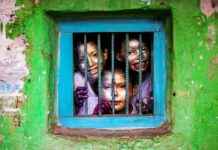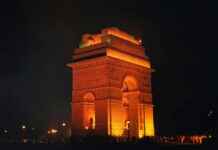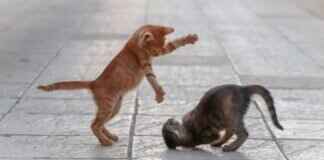This article explores the vibrant celebration of Diwali in New York City, highlighting its cultural significance, community involvement, and the unique ways it is observed in this bustling metropolis.
The Significance of Diwali
Diwali, often referred to as the Festival of Lights, is a significant cultural and religious event celebrated by millions around the world. It symbolizes the triumph of light over darkness and good over evil, rooted deeply in Hindu mythology. In New York City, the importance of Diwali is magnified by the city’s diverse population, where various communities come together to honor this festival with great enthusiasm. Understanding the cultural roots of Diwali enhances the celebrations, as it allows participants to appreciate the underlying themes of hope, renewal, and communal harmony.
During Diwali, families engage in various rituals such as prayer offerings, lighting oil lamps, and decorating their homes with colorful rangoli designs. These practices not only signify the welcoming of prosperity and happiness but also foster a sense of unity among families and friends. In NYC, the festival transcends religious boundaries, attracting people from different backgrounds to join in the festivities, thereby promoting cultural exchange and understanding.
Diwali Celebrations in NYC
New York City is renowned for its vibrant celebrations, and Diwali is no exception. The city hosts a plethora of events, ranging from street fairs to cultural performances, which reflect the rich tapestry of the Indian community. These gatherings provide an opportunity for individuals to immerse themselves in the festive spirit, showcasing traditional music, dance, and cuisine.
One of the most remarkable aspects of Diwali in NYC is the community festivals held in various neighborhoods. These festivals often feature live performances, food stalls, and art exhibitions, creating a lively atmosphere that brings people together. The participation of local artists and performers ensures that the celebrations not only entertain but also educate attendees about the cultural significance of Diwali. Through these events, New Yorkers experience the warmth and vibrancy of Indian culture, fostering a sense of belonging and pride.
Food Traditions During Diwali
Food is an integral part of Diwali celebrations, symbolizing abundance and joy. Families prepare a wide array of traditional dishes, including sweets and savory snacks, which are shared with friends and neighbors. This culinary aspect enhances the festive spirit, as food serves as a medium for connection and celebration.
Traditional sweets such as ladoos and barfis are particularly significant during Diwali. These delicacies are often exchanged among loved ones as a gesture of goodwill, reinforcing bonds and sharing happiness. Additionally, savory dishes like samosas and pakoras complement the sweet offerings, showcasing the diversity and richness of Indian cuisine. Many local restaurants and catering services in NYC offer special Diwali menus, allowing patrons to indulge in authentic flavors and create memorable dining experiences.
Community Involvement and Outreach
Community involvement plays a crucial role in the Diwali celebrations in New York City. Various organizations and community groups conduct outreach programs to educate the public about the festival’s significance and traditions. These initiatives aim to foster understanding and appreciation among diverse communities, bridging cultural gaps and promoting inclusivity.
Charitable initiatives are also a prominent feature of Diwali celebrations. Many organizations organize food drives and fundraising events, encouraging individuals to give back to the community during this festive season. By participating in these charitable activities, attendees not only celebrate Diwali’s spirit of generosity but also contribute to the welfare of those in need.
Workshops and educational programs further enhance the community’s engagement during Diwali. These sessions often cover topics such as traditional rituals, cooking classes for Diwali delicacies, and discussions on the festival’s history, allowing participants to gain a deeper understanding of the cultural significance of Diwali.

The Significance of Diwali
Diwali, also known as the Festival of Lights, holds profound significance in various cultures, particularly within the Indian community. This annual celebration marks the triumph of light over darkness and good over evil, representing a time of renewal, hope, and joy. Understanding the essence of Diwali not only enriches the experience for those who participate in the festivities but also fosters appreciation among individuals from diverse backgrounds.
The festival is rooted in ancient traditions and is celebrated over five days, with each day holding its unique significance. The most prominent day, Lakshmi Puja, is dedicated to the worship of Goddess Lakshmi, the deity of wealth and prosperity. Homes and businesses are adorned with diyas (oil lamps) and vibrant rangoli designs, symbolizing the welcoming of light and positivity. This act of illumination signifies the dispelling of ignorance and the embrace of knowledge and wisdom.
In addition to its spiritual aspects, Diwali serves as a time for family reunions and social gatherings. Families come together to share meals, exchange gifts, and participate in rituals that strengthen bonds and create lasting memories. The festival encourages individuals to reflect on their lives, fostering a sense of gratitude and appreciation for loved ones and the blessings they have received.
Diwali also promotes a sense of community and unity among people. In cities like New York, the festival brings together individuals from various backgrounds, encouraging them to celebrate and learn about each other’s cultures. This inclusivity is essential in fostering harmony and understanding in a multicultural society. Events such as community fairs, cultural performances, and educational workshops allow participants to engage with the rich traditions of Diwali, further enhancing their understanding of its significance.
Moreover, Diwali’s emphasis on charity and goodwill is a crucial aspect of its celebration. Many individuals and organizations engage in charitable initiatives during this time, contributing to food drives and fundraising efforts to support those in need. This spirit of giving reinforces the idea that the festival is not just about personal celebration but also about uplifting others and fostering a sense of community responsibility.
In summary, the significance of Diwali extends beyond mere festivities. It encapsulates profound themes of light, knowledge, community, and compassion. By understanding these elements, individuals can fully appreciate the festival’s rich cultural heritage and the values it promotes, making the celebration in places like New York City a vibrant and meaningful experience for all.

Diwali Celebrations in NYC
New York City, a melting pot of cultures, comes alive during the vibrant festival of Diwali, also known as the Festival of Lights. The city hosts a plethora of celebrations that reflect the rich tapestry of the Indian community. From street fairs to cultural performances, these events not only entertain but also educate and engage the wider public about the significance of Diwali. In this article, we delve deeper into the various ways Diwali is celebrated across the city, showcasing the community spirit and cultural pride that defines this festival.
Community Festivals
Community festivals are the heart of Diwali celebrations in NYC. These gatherings serve as a platform for individuals and families to come together, celebrating their heritage through traditional music, dance, and food. Events such as the Diwali Festival at Times Square attract thousands of attendees, featuring live performances by local artists that showcase classical and contemporary Indian dance forms. Participants can enjoy a variety of activities, including:
- Live music and dance performances
- Artisan stalls featuring handmade crafts
- Cooking demonstrations of traditional Indian dishes
These festivals foster a sense of belonging and cultural pride among attendees, encouraging them to share their customs and traditions with others. The sense of community is palpable, as families and friends gather to celebrate, creating lasting memories.
Street Fairs
Street fairs are a highlight of Diwali celebrations in NYC, transforming neighborhoods into vibrant marketplaces filled with colorful stalls, tantalizing aromas, and festive decorations. Events like the Diwali Street Fair in Jackson Heights feature a plethora of activities for all ages, including:
- Delicious Indian cuisine from local vendors
- Live performances of traditional music and dance
- Children’s activities, such as face painting and crafts
The atmosphere is electric, with attendees enjoying the sights and sounds of the festival while indulging in mouthwatering dishes like samosas and paneer tikka. These fairs not only celebrate Diwali but also promote local businesses, creating a sense of economic vitality within the community.
Religious Observances
For many, Diwali is a deeply spiritual occasion marked by religious observances at temples and community centers. Places like the Hindu Temple Society of North America host special prayers, rituals, and cultural programs that deepen the spiritual connection for participants. Activities often include:
- Puja ceremonies to honor deities
- Lighting of diyas (oil lamps) to symbolize the triumph of light over darkness
- Community feasts that bring people together
These observances provide an opportunity for individuals to reflect on the significance of Diwali, fostering a sense of unity and shared purpose among attendees.
Cultural Performances
Cultural performances during Diwali celebrations showcase the rich heritage of Indian culture, offering a glimpse into traditional dances and music that engage audiences from diverse backgrounds. Events often feature:
- Classical dance forms such as Bharatanatyam and Kathak
- Folk dances that vary by region, showcasing the diversity of Indian traditions
- Musical performances that highlight traditional instruments like the tabla and sitar
These performances are not only entertaining but also serve as a means of cultural exchange, educating attendees about the history and significance of various art forms.
Community Festivals
Community festivals during Diwali in New York City serve as a vibrant tapestry of culture, tradition, and community spirit. These festivals not only celebrate the Festival of Lights but also act as a bridge connecting diverse communities through shared experiences. Here, we delve into the essence of these gatherings, highlighting their significance, activities, and the sense of belonging they foster among attendees.
- Unity in Diversity: Diwali festivals in NYC attract individuals from various backgrounds, creating a melting pot of cultures. This unity is evident in the collaborative efforts of different community organizations that come together to plan and execute these events.
- Traditional Music and Dance: The air is filled with the sounds of traditional Indian music, with performances ranging from classical to contemporary styles. Dance troupes showcase cultural dances such as Bharatanatyam and Bhangra, inviting attendees to participate and learn.
- Culinary Delights: Food stalls offering a variety of Indian delicacies are a highlight of these festivals. From savory snacks like samosas and pakoras to sweet treats like jalebis and ladoos, the culinary offerings reflect the rich heritage of Indian cuisine.
One of the most notable aspects of Diwali festivals in NYC is the **community involvement**. Local organizations, schools, and temples often play a pivotal role in organizing events, ensuring that the festivities are inclusive and accessible to all. Volunteers from various backgrounds come together, demonstrating a collective commitment to celebrating the festival and fostering intercultural understanding.
Activities at these festivals often include: - Cultural performances - Workshops on traditional crafts - Community prayers and rituals
Moreover, these festivals create a platform for cultural exchange. Attendees not only celebrate their own traditions but also learn about the customs of others. This exchange fosters a deeper appreciation for diversity and promotes harmony among different cultural groups. For instance, many festivals feature booths that educate visitors about the significance of Diwali, its rituals, and the values it represents.
The sense of **belonging** that these festivals cultivate is particularly significant for immigrants and first-generation families. For many, attending a Diwali festival becomes a cherished tradition, a time to reconnect with their roots and share their culture with younger generations. It provides an opportunity for families to bond over shared experiences and for children to learn about their heritage in a lively and engaging environment.
In addition to cultural performances and culinary experiences, community festivals often include **family-friendly activities** such as face painting, craft stations, and interactive games. These activities ensure that the festival is enjoyable for attendees of all ages, fostering a family-oriented atmosphere that encourages participation and engagement.
As the sun sets, the festivals transform into a dazzling display of lights, with **decorative diyas** and colorful rangoli designs illuminating the surroundings. Fireworks often conclude the festivities, creating a spectacular visual treat that symbolizes the triumph of light over darkness.
In summary, community festivals during Diwali in New York City are more than just celebrations; they are a celebration of unity, diversity, and cultural pride. They bring together people from all walks of life, creating a sense of community that is essential in a bustling metropolis. Through music, dance, food, and shared experiences, these festivals foster connections that transcend cultural boundaries, making Diwali a truly special occasion for everyone involved.
Street Fairs
Street fairs during Diwali in New York City are not just events; they are vibrant celebrations that encapsulate the spirit of the festival. These fairs serve as a gathering place for families, friends, and community members, offering a unique blend of cultural experiences, culinary delights, and entertainment. The atmosphere is alive with excitement, making it a must-visit for anyone looking to immerse themselves in the festive spirit.
Attendees can expect a myriad of colorful stalls that showcase traditional Indian crafts, clothing, and jewelry. Artisans and vendors come together to present their best work, allowing visitors to explore the rich tapestry of Indian culture. The stalls are often adorned with festive decorations, creating a visually stunning environment that draws in crowds of all ages.
One of the highlights of these street fairs is the live performances that take place throughout the day. Local artists and performers showcase traditional Indian music and dance, including classical forms like Bharatanatyam and folk dances from various regions of India. These performances not only entertain but also educate attendees about the cultural significance of the art forms, making the experience enriching for everyone involved.
No Diwali street fair would be complete without the tantalizing aromas of delicious Indian cuisine. Food stalls offer an array of mouth-watering dishes, from samosas and pakoras to chole bhature and biryani. Sweet treats like jalebi and gulab jamun are also popular, providing a perfect balance to the savory offerings. Each bite is a celebration of flavors, and many attendees find themselves exploring new dishes they may not have tried before.
Street fairs are designed to be family-friendly, featuring activities that engage children and adults alike. From face painting and henna tattoo stations to interactive workshops, there is something for everyone. These activities encourage families to bond and create lasting memories while learning about the significance of Diwali and Indian culture.
The essence of these fairs lies in the sense of community spirit they foster. They serve as a platform for cultural exchange, allowing people from different backgrounds to come together and celebrate Diwali. This interaction promotes understanding and appreciation of diverse cultures, making the fairs a vital part of New York City’s multicultural landscape.
Organizers strive to make these street fairs accessible to everyone. They often collaborate with local businesses and community organizations to ensure that the events are inclusive, welcoming individuals of all ages and backgrounds. Participation is encouraged, and many attendees find joy in volunteering or contributing to the event, further enhancing the communal atmosphere.
In summary, Diwali street fairs in New York City are a rich tapestry of culture, cuisine, and community. They offer a unique opportunity to experience the vibrancy of Indian traditions while fostering connections among diverse populations. Whether you are a long-time resident or a visitor, these fairs are an essential part of the Diwali celebrations you won’t want to miss.
Religious Observances
Religious Observances During Diwali in New York CityDiwali, the Festival of Lights, is not only a time for celebration but also a period of profound spiritual reflection and community bonding. In New York City, many temples and community centers play a pivotal role in hosting that allow participants to engage deeply with the festival’s traditions. These observances often include a variety of prayers, rituals, and cultural programs, enriching the spiritual experience for all involved.
During Diwali, temples across the city become vibrant centers of activity, drawing people from diverse backgrounds to partake in the festivities. Many temples offer special prayer services known as pujas, where devotees gather to offer prayers to deities such as Lord Ganesha and Goddess Lakshmi. These rituals are designed to invoke blessings for prosperity and well-being, aligning perfectly with the themes of the festival.
In addition to traditional prayers, many community centers organize cultural programs that blend spirituality with artistic expression. These events often feature performances of traditional music and dance, allowing participants to experience the rich tapestry of Indian culture. For instance, attendees might witness performances of classical dance forms such as Bharatanatyam or Kathak, which tell stories of mythology and spirituality, further enhancing the festival’s significance.
Moreover, the observances during Diwali serve as a platform for community outreach and education. Many temples conduct workshops that focus on the history and significance of Diwali, fostering a deeper understanding among attendees. These workshops often include discussions on the philosophical aspects of the festival, emphasizing the importance of light over darkness and good over evil. Such educational initiatives not only engage the Indian community but also invite individuals from other cultures to participate, promoting inclusivity and mutual respect.
Another essential aspect of the religious observances is the community meal, known as prasad, which is distributed to all attendees after the prayers. This meal, often consisting of traditional sweets and savory dishes, symbolizes the sharing of joy and blessings among community members. It reinforces the idea that Diwali is not just a personal celebration but a communal experience that brings people together.
Furthermore, many temples also host charity drives during Diwali, encouraging participants to contribute to local causes. This act of giving back reflects the festival’s core values and underscores the importance of community support. By engaging in charitable initiatives, participants not only celebrate the festival but also extend its spirit of generosity and compassion to those in need.
In summary, the religious observances during Diwali in New York City are multifaceted, encompassing prayers, rituals, cultural programs, and community outreach. These events create a profound spiritual connection for participants, allowing them to celebrate their heritage while fostering a sense of belonging within the broader community. Through these observances, the essence of Diwali as a festival of light, hope, and togetherness is beautifully manifested.
Cultural Performances
Cultural performances during Diwali celebrations are a vibrant tapestry of traditional dances, music, and theatrical presentations that not only entertain but also educate audiences about the rich heritage of Indian culture. These performances are a vital part of the festivities, offering a unique opportunity for communities to come together and celebrate their shared history and values.
- Traditional Dances: The heart of Diwali celebrations lies in the array of traditional dances performed across various stages. From the graceful movements of Bharatanatyam to the energetic beats of Bhangra, each dance form tells a story, reflecting the diverse cultures of India. These performances often involve colorful costumes and intricate choreography, captivating audiences of all ages.
- Musical Showcases: Music is another integral component of Diwali celebrations. Local artists and musicians come together to perform traditional songs, often accompanied by live instruments. The melodies resonate with the themes of joy and triumph, enhancing the festive atmosphere. Instruments like the sitar, tabla, and harmonium are commonly featured, creating an immersive experience for attendees.
- Theatrical Presentations: In addition to dance and music, theatrical performances are a significant aspect of Diwali celebrations. These plays often depict stories from ancient scriptures, such as the Ramayana and Mahabharata, illustrating the moral lessons and cultural values inherent in these tales. Engaging narratives, combined with stunning visuals and costumes, draw audiences into the world of Indian mythology.
The cultural performances during Diwali are not just about entertainment; they serve a deeper purpose. They foster a sense of belonging and identity among participants, particularly for those who may be far from their homeland. For many, these events are a way to reconnect with their roots and share their heritage with others.
Moreover, these performances are inclusive, inviting individuals from various backgrounds to participate and appreciate the beauty of Indian culture. This aspect of Diwali celebrations in urban settings, such as New York City, is particularly noteworthy. Audiences from diverse ethnicities and cultures come together to witness these artistic expressions, creating a melting pot of traditions.
The impact of cultural performances extends beyond the festivities. They play a crucial role in educating younger generations about their heritage. Workshops and community classes often accompany these performances, allowing individuals to learn traditional dance forms or musical instruments. This hands-on approach ensures that the cultural legacy is passed down, preserving it for future generations.
In summary, cultural performances during Diwali are a celebration of tradition, community, and heritage. They engage audiences, foster inclusivity, and provide a platform for cultural exchange. As these performances continue to evolve, they remain a vital aspect of the Diwali celebrations, reflecting the dynamic and diverse nature of Indian culture in a globalized world.

Food Traditions During Diwali
Food is not merely sustenance during Diwali; it is a celebration of culture, heritage, and community. As families come together, the kitchen becomes a hub of activity, filled with the aromas of spices, sweets, and savory dishes that are integral to the festive atmosphere. The culinary traditions associated with Diwali are rich and diverse, reflecting the various regional influences across India. Understanding these food traditions can provide deeper insights into the significance of the festival and enhance the overall experience of the celebrations.
The essence of Diwali is encapsulated in its food. It serves as a medium for expressing love, gratitude, and the spirit of sharing. Families prepare an array of delicacies, often passed down through generations, symbolizing the continuity of traditions. The act of cooking and sharing food is an essential way of strengthening family bonds and fostering community spirit. During this time, it’s common for households to invite friends and neighbors, further emphasizing the importance of communal dining.
At the heart of Diwali festivities are the traditional sweets, which hold significant cultural importance. Sweets like ladoos, barfis, and jalebis are prepared with great care and are often made using ingredients like ghee, sugar, and various nuts. These sweets are not only delicious but also symbolize prosperity and happiness. Exchanging sweets among friends and family is a common practice, reinforcing social ties and spreading joy. The preparation of these confections can be a family affair, with members gathering to create these delightful treats, thus enhancing the festive spirit.
While sweets are the highlight, savory dishes play an equally important role during Diwali. Items like samosas, pakoras, and chole bhature are staples at any Diwali gathering. These dishes provide a savory contrast to the sweetness of desserts, ensuring a balanced meal. The preparation of these dishes often involves elaborate recipes, showcasing the culinary skills of family members. The communal aspect is further highlighted as families often cook together, sharing recipes and techniques that have been passed down through generations.
India’s vast cultural diversity is reflected in the variety of foods prepared during Diwali. For instance, in the northern regions, kheer (a rice pudding) is a popular sweet, while in the south, payasam serves a similar purpose. Each region brings its unique flavors and cooking methods to the table, making Diwali a truly diverse culinary experience. This regional variation not only enriches the celebration but also allows families to explore and appreciate the different culinary traditions of India.
During Diwali, the spirit of giving is prevalent, and food plays a crucial role in charitable initiatives. Many families prepare extra portions of their meals to share with those in need, embodying the festival’s ethos of generosity. Community organizations often host food drives and distribute meals, ensuring that everyone can partake in the festive spirit. This act of sharing food not only nourishes the body but also uplifts the community, reaffirming the importance of compassion and support during the festival.
In summary, the food traditions during Diwali are integral to the celebrations, encompassing a rich tapestry of flavors, cultural significance, and communal bonding. The preparation and sharing of food not only enhance the festive spirit but also strengthen the ties that bind families and communities together.
Traditional Sweets
Diwali, the Festival of Lights, is a time for celebration, reflection, and togetherness. Among the many traditions that define this vibrant festival, the preparation and sharing of hold a special place in the hearts of many. These sweets, such as ladoos and barfis, are not merely desserts; they are symbols of joy and prosperity, embodying the spirit of the occasion. Their significance extends beyond taste, serving as a medium for expressing goodwill and fostering connections among friends and family.
During Diwali, the act of exchanging sweets is a cherished tradition that reinforces bonds between loved ones. The preparation of these sweets is often a family affair, where recipes are passed down through generations, creating a sense of nostalgia and togetherness. Each sweet has its own unique story and cultural significance, making them an integral part of the celebrations.
Traditional Indian sweets come in a myriad of forms, flavors, and textures. Ladoos, typically made from gram flour, sugar, and ghee, are round, sweet balls that symbolize prosperity. Barfis, on the other hand, are dense, milk-based confections that can be flavored with nuts, fruits, or spices. Other popular sweets include:
- Jalebi – A deep-fried sweet made from fermented batter, soaked in sugar syrup.
- Gulab Jamun – Soft, round balls made from milk solids and soaked in rose-flavored syrup.
- Rasgulla – Spongy, syrupy sweets made from chhena (Indian cottage cheese).
- Kaju Katli – A diamond-shaped sweet made from cashew nuts and sugar, often garnished with edible silver foil.
The process of making traditional sweets is often filled with love and care. Families gather in the kitchen to prepare these delicacies, often starting days in advance of the festival. The recipes may vary from region to region, with each family adding their own twist. For example, the preparation of ladoos involves roasting the flour until golden brown before mixing it with ghee and sugar, whereas barfis require careful cooking of milk until it thickens and can be shaped into squares.
Exchanging sweets during Diwali is not just about sharing food; it is a gesture of goodwill and a way to strengthen relationships. Families often visit neighbors and friends, bringing boxes of sweets to share. This act of giving signifies the sharing of happiness and blessings, making it a vital part of the Diwali experience. In many cultures, sweets are also offered to deities during prayers, symbolizing the sweetness of life and the hope for a prosperous year ahead.
In contemporary celebrations, traditional sweets have evolved but still retain their significance. Many people now opt for store-bought sweets or fusion desserts that incorporate traditional flavors into modern recipes. However, the essence of sharing and celebrating remains unchanged. Whether homemade or purchased, these sweets continue to play a crucial role in bringing people together during Diwali.
In conclusion, traditional sweets are more than just delicious treats; they are a cultural cornerstone of Diwali celebrations. Their preparation, sharing, and enjoyment foster a sense of community and reinforce the bonds of love and friendship. As we celebrate Diwali, let us remember the joy that these sweets bring and the connections they help to strengthen.
Savory Dishes
During the vibrant festival of Diwali, the culinary landscape is as diverse as the cultural traditions that accompany the celebrations. While sweets like ladoos and barfis often steal the spotlight, such as samosas and pakoras play an equally important role in enriching the festive experience. These delectable treats not only tantalize the taste buds but also symbolize the rich tapestry of Indian cuisine, bringing families and communities together in joyous celebration.
The significance of savory dishes during Diwali cannot be overstated. These dishes are often prepared in large quantities, shared among friends and family, and served at community gatherings, reinforcing the spirit of togetherness. Samosas, for instance, are deep-fried pastries filled with spiced potatoes, peas, and sometimes meat, offering a delightful crunch that complements the soft sweetness of traditional desserts. Similarly, pakoras, which are battered and fried vegetable fritters, provide a crispy delight that is perfect for snacking during festive gatherings.
Moreover, the preparation of these savory dishes is often a family affair. Generations come together in the kitchen, sharing recipes that have been passed down through time. This process not only strengthens familial bonds but also fosters a sense of cultural identity. The act of cooking becomes a celebration in itself, where the aromas of spices like cumin, coriander, and turmeric fill the air, creating an atmosphere of warmth and festivity.
In addition to being enjoyed at home, savory dishes are a staple at Diwali street fairs and community celebrations throughout New York City. These events often feature stalls offering a variety of Indian snacks, allowing attendees to sample different flavors and textures. The vibrant atmosphere, filled with laughter and the sounds of traditional music, creates a unique backdrop for indulging in these culinary delights.
Furthermore, the popularity of savory dishes during Diwali reflects the broader diversity of Indian cuisine. Each region of India boasts its own specialties, and during Diwali, it is common to see a fusion of these regional flavors. For example, while northern India may favor spicy samosas, southern India might offer crispy medu vadas or masala dosas, showcasing the vast culinary landscape of the country.
As the festival of lights approaches, many restaurants and catering services in New York City also embrace the spirit of Diwali by offering special menus that highlight these savory dishes. This not only allows patrons to indulge in authentic Indian cuisine but also supports local businesses that contribute to the vibrant Indian community in the city.
In conclusion, savory dishes like samosas and pakoras are integral to the Diwali celebrations, providing a flavorful complement to the sweet offerings. Through their preparation and enjoyment, these dishes reflect the rich diversity of Indian cuisine and the communal spirit that is at the heart of this joyous festival.

Diwali in Local Businesses
In the vibrant tapestry of New York City, local businesses play a pivotal role in celebrating Diwali, the Festival of Lights. This cultural phenomenon not only showcases the rich traditions of the Indian community but also significantly impacts the local economy. As Diwali approaches, businesses across the city engage in a variety of initiatives designed to celebrate this festival, attracting both local residents and tourists alike.
During this festive season, retailers often curate special promotions that resonate with the spirit of Diwali. Many shops feature Diwali-themed discounts on traditional attire, home decor, and unique gifts. For example, clothing stores may showcase vibrant sarees and kurtas, adorned with intricate designs that reflect the festival’s essence. This not only boosts sales but also encourages customers to participate in the celebrations by purchasing items that symbolize the festival’s significance.
Moreover, local businesses often collaborate with artisans and craftsmen to offer exclusive products that highlight traditional Indian artistry. This initiative not only supports local talent but also fosters a sense of community pride. Shoppers are often drawn to these unique offerings, as they provide an authentic connection to the cultural roots of Diwali.
Restaurants and Catering Services
The culinary aspect of Diwali is another significant area where local businesses thrive. Restaurants across New York City typically roll out special menus featuring traditional dishes that cater to the festive spirit. From mouthwatering samosas to delectable ladoo sweets, these culinary delights are not only a feast for the palate but also a means of bringing people together. Many restaurants host special Diwali events that include live music, dance performances, and cultural programs, creating a vibrant atmosphere that enhances the overall dining experience.
Additionally, catering services often provide customized Diwali packages for families and community gatherings. These packages typically include a variety of traditional dishes, allowing families to celebrate with authentic flavors at home. This service not only meets the demand for traditional cuisine but also allows families to focus on the festivities without the stress of cooking.
Community Engagement and Economic Impact
The involvement of local businesses in Diwali celebrations extends beyond mere commerce; it fosters community engagement and promotes cultural awareness. Many businesses participate in community outreach programs, hosting workshops that educate the public about the significance of Diwali. These initiatives aim to bridge cultural gaps and promote understanding among diverse communities in New York City.
Moreover, charitable initiatives during Diwali are prevalent, with businesses often organizing food drives and fundraising events. This not only supports local charities but also encourages a spirit of giving back to the community. Many consumers appreciate businesses that contribute to social causes, which can enhance customer loyalty and brand reputation.
In conclusion, the celebration of Diwali in local businesses throughout New York City exemplifies the festival’s economic and cultural impact. By offering special promotions, engaging in community outreach, and celebrating the culinary traditions of the festival, these businesses not only enrich the local economy but also foster a sense of belonging and cultural pride. As the city lights up with the spirit of Diwali, local businesses play a crucial role in ensuring that the festival is a memorable experience for everyone involved.
Retail Promotions
As the vibrant festival of Diwali approaches, retailers in New York City gear up to embrace the spirit of this auspicious occasion. With a focus on attracting shoppers eager to celebrate, many businesses launch Diwali-themed promotions that cater to the diverse needs of the community. These promotions not only offer significant discounts on traditional attire and home decor but also provide a wide array of gifts that resonate with the cultural essence of the festival.
During this festive season, retailers often showcase a variety of products that reflect the rich traditions associated with Diwali. From colorful sarees and elegant lehengas to intricately designed home decor items, the offerings are designed to appeal to a broad audience. Shoppers looking for the perfect outfit to wear during family gatherings or community celebrations can find attractive deals that make the shopping experience both enjoyable and economical.
In addition to clothing, retailers also emphasize home decor items, which play a crucial role in Diwali celebrations. Many families decorate their homes with lights, diyas, and rangoli to create a festive atmosphere. Retailers take this opportunity to offer discounts on decorative items, allowing customers to enhance their living spaces while saving money. This not only boosts sales for businesses but also fosters a sense of community as families come together to prepare for the festivities.
Furthermore, gift-giving is an integral part of Diwali, and retailers capitalize on this by curating special gift packages. These packages often include a combination of sweets, decorative items, and traditional artifacts that embody the spirit of the festival. By promoting these gift sets, retailers cater to the needs of shoppers who wish to express their love and appreciation for family and friends during this special time.
To maximize their reach, many retailers also utilize digital marketing strategies, creating targeted ads and social media campaigns that highlight their Diwali promotions. This approach not only increases visibility but also engages younger audiences who are increasingly turning to online shopping. By leveraging technology and social media, businesses can effectively communicate their offers and attract a larger customer base.
Moreover, retailers often collaborate with local artists and craftsmen to create unique, limited-edition products that stand out in the market. This not only supports the local economy but also ensures that shoppers have access to authentic and culturally rich items that resonate with the significance of Diwali. Such collaborations enhance the shopping experience and provide customers with a sense of connection to their heritage.
In conclusion, the Diwali season presents a golden opportunity for retailers in New York City to engage with the community through well-planned promotions. By offering discounts on traditional attire, home decor, and thoughtful gifts, businesses not only attract shoppers but also contribute to the festive spirit of the festival. This fusion of commerce and culture enriches the experience for all, ensuring that Diwali remains a celebrated occasion in the heart of the city.
Restaurants and Catering
As the vibrant festival of Diwali approaches, the culinary scene in New York City comes alive with a plethora of flavors, aromas, and festive spirit. Restaurants and catering services play a pivotal role in enhancing the Diwali experience, offering unique and special menus that allow patrons to indulge in authentic Indian cuisine during this auspicious season.
During Diwali, many restaurants in New York City curate special menus that reflect the essence of the festival. These menus often include a variety of traditional dishes that are integral to the celebrations. From rich curries to delectable sweets, the offerings are designed to evoke the flavors of home-cooked meals, making them a favorite among both locals and visitors.
Restaurants like Junoon and Chola are known for their elaborate Diwali specials, featuring dishes such as Paneer Tikka, Biryani, and a selection of mouth-watering desserts like Gulab Jamun and Jalebi. These establishments often go the extra mile to create an immersive dining experience, with festive decorations and themed events that celebrate the spirit of Diwali.
For those hosting Diwali parties or family gatherings, catering services provide an excellent solution to bring the flavors of India right to their doorstep. Many catering companies offer customized packages that include a range of vegetarian and non-vegetarian options, allowing hosts to choose dishes that cater to their guests’ preferences.
Services like Indian Spice and MasalaWala are popular choices for catering during Diwali. They provide not only food but also essential items like decorative trays, traditional table settings, and even cultural performances to elevate the dining experience. This holistic approach ensures that every aspect of the celebration is taken care of, allowing hosts to enjoy the festivities without the stress of preparation.
In addition to special menus, many restaurants and catering services host events during the Diwali season. These events often include cooking classes, tasting menus, and cultural nights that feature live music and dance performances. Such events not only promote the rich culinary traditions of India but also foster community engagement and cultural exchange.
Moreover, restaurants often collaborate with local organizations to host charity events, where a portion of the proceeds from Diwali specials goes to support community initiatives. This aspect of Diwali celebrations emphasizes the importance of giving back, aligning with the festival’s core values of generosity and community spirit.
In conclusion, the role of restaurants and catering services during Diwali in New York City is crucial in enriching the festive experience. By offering special menus, hosting events, and providing catering solutions, these businesses not only fulfill the culinary desires of patrons but also contribute to the overall celebration of culture and community. As the Festival of Lights approaches, indulging in these culinary delights becomes an integral part of the Diwali experience, allowing everyone to partake in the joy and festivity of this beautiful occasion.

Community Involvement and Outreach
During the vibrant festival of Diwali, community involvement takes center stage, playing a pivotal role in fostering a sense of unity and shared cultural heritage. Various organizations and community groups in New York City engage in outreach programs that aim to educate the wider public about the festival’s significance, traditions, and values. This engagement not only enhances the understanding of Diwali among diverse populations but also promotes inclusivity and community spirit.
Diwali is more than just a festival; it is a celebration of light, hope, and the triumph of good over evil. To truly appreciate its essence, community outreach efforts are essential. Organizations host workshops, seminars, and informational booths in various neighborhoods, particularly in areas with a significant multicultural presence. These initiatives serve to:
- Educate: Workshops often include storytelling, traditional music, and dance performances that explain the mythological stories behind Diwali, such as the return of Lord Rama to Ayodhya.
- Engage: Interactive activities, such as diya painting and rangoli making, allow participants to experience the festival hands-on, fostering a deeper connection to the cultural practices.
- Empower: By involving community members in organizing events, individuals gain leadership skills and a sense of ownership over their cultural celebrations.
Collaboration is key to successful community involvement during Diwali. Local businesses, schools, and cultural organizations often partner to create inclusive events that celebrate the festival’s spirit. These collaborations can take various forms:
- Street Festivals: Many neighborhoods host Diwali street fairs, featuring food stalls, cultural performances, and activities for children. These fairs attract people from all backgrounds, allowing them to experience the vibrancy of Diwali.
- Charity Drives: Organizations often organize food drives or fundraising events during Diwali, encouraging community members to donate to local charities. This not only helps those in need but also reinforces the value of giving and compassion that is central to the festival.
- Educational Programs: Schools may incorporate Diwali into their curriculum, inviting guest speakers from the community to share their experiences and insights, thereby enriching students’ understanding of cultural diversity.
Community involvement during Diwali promotes inclusivity and cultural exchange, allowing people from different backgrounds to come together and celebrate. This not only builds bridges between communities but also fosters mutual respect and understanding. Events often feature:
- Multicultural Performances: Dance troupes and musicians from various cultural backgrounds are invited to perform, showcasing the rich tapestry of New York City’s diversity.
- Food Festivals: Food plays a central role in Diwali celebrations, and community events often include a variety of cuisines, allowing attendees to experience the culinary diversity that mirrors the city itself.
- Art Exhibitions: Local artists may showcase their work inspired by Diwali themes, encouraging dialogue about cultural representation and artistic expression.
Through these efforts, Diwali becomes a platform for dialogue and understanding, where individuals can learn from one another and appreciate the beauty of cultural differences. As the festival lights illuminate the streets of New York City, they also shine a light on the importance of community involvement and outreach in celebrating this cherished occasion.
Charitable Initiatives
During the vibrant festival of Diwali, the spirit of giving is palpable, especially in bustling urban centers like New York City. take center stage, encouraging individuals and communities to come together and support those in need. These initiatives not only embody the essence of the festival but also serve as a reminder of the importance of community support and compassion.
Throughout the city, a variety of events are organized, ranging from food drives to fundraising events, all aimed at supporting local charities. These efforts are pivotal as they directly impact the lives of individuals and families who may be struggling, particularly during a time of celebration when the contrast between abundance and scarcity is most evident.
One of the most common charitable activities during Diwali is the organization of food drives. Community members come together to collect non-perishable food items, which are then distributed to local food banks and shelters. This initiative not only helps to alleviate hunger but also fosters a sense of unity among participants. Many families choose to volunteer their time to help pack and distribute food, teaching younger generations the value of selflessness and community service.
In addition to food drives, numerous fundraising events are held to support various charitable organizations. These events often take the form of gala dinners, cultural performances, and auctions, where proceeds are donated to causes such as education, healthcare, and poverty alleviation. The participation of local businesses in these events is crucial, as they often sponsor activities or donate goods and services, further amplifying the impact of these charitable efforts.
Moreover, many temples and cultural organizations in New York City host special events during Diwali that emphasize the importance of philanthropy. These gatherings often include speeches from community leaders who highlight the significance of giving back and the positive changes it can bring to society. By integrating the spirit of giving into the festivities, these organizations ensure that the message of Diwali transcends beyond personal celebration and extends to the broader community.
Another noteworthy aspect of charitable initiatives during Diwali is the emphasis on awareness campaigns. Many organizations take this opportunity to educate the public about various social issues, encouraging attendees to get involved. Workshops and informational sessions are organized to discuss topics such as homelessness, mental health, and educational disparities. These initiatives not only raise awareness but also motivate individuals to contribute their time and resources to address these pressing challenges.
As the festival approaches, the collective efforts of the community to give back become increasingly evident. The enthusiasm surrounding these charitable initiatives reflects a deep-seated belief in the power of compassion and the importance of supporting one another. By participating in these activities, individuals not only celebrate Diwali in a meaningful way but also contribute to creating a more equitable society.
In conclusion, the charitable initiatives during Diwali in New York City serve as a powerful reminder of the festival’s core values. Through food drives, fundraising events, and awareness campaigns, the community comes together to uplift those in need, embodying the spirit of selflessness and generosity that defines Diwali. These efforts not only enhance the festive atmosphere but also create lasting change, ensuring that the light of hope shines brightly for all.
Workshops and Educational Programs
In the heart of New York City, the vibrant celebration of Diwali transcends mere festivities, evolving into a rich educational experience through . These initiatives are designed to immerse attendees in the traditions and cultural significance of Diwali, fostering a deeper understanding and appreciation of this important festival among the city’s diverse communities.
Workshops and educational programs related to Diwali serve as a bridge between cultures, offering a platform for individuals from various backgrounds to learn about the festival’s historical roots and cultural practices. These programs are often hosted by community organizations, cultural centers, and educational institutions, aiming to promote inclusivity and cultural exchange.
- Interactive Learning: Many workshops incorporate hands-on activities, such as traditional art forms like rangoli making or diya painting, allowing participants to engage with the culture creatively.
- Discussion Panels: Experts and community leaders often lead discussions on the significance of Diwali, addressing its themes of light overcoming darkness and the importance of community and family.
- Culinary Classes: Food is a vital part of any celebration. Culinary workshops teach participants how to prepare traditional Diwali dishes, such as sweets and savory snacks, enriching their understanding of the festival’s culinary heritage.
By participating in these workshops, attendees not only gain knowledge but also develop a sense of community and belonging. This is particularly significant in a multicultural city like New York, where understanding and respect for different traditions can lead to stronger community ties.
Educational programs are often tailored to various age groups, ensuring that everyone from children to adults can benefit. Schools frequently collaborate with local cultural organizations to incorporate Diwali-themed lessons into their curricula. This approach not only educates students about the festival but also encourages them to share their newfound knowledge with family and friends, thus broadening the impact of these programs.
- School Programs: Many schools in New York City organize assemblies and workshops that focus on the values of Diwali, such as compassion, friendship, and celebration of diversity.
- Community Outreach: Organizations often extend their educational efforts beyond their immediate communities, reaching out to local libraries and community centers to host workshops that are open to all.
This outreach is crucial in promoting an inclusive atmosphere where everyone can appreciate the richness of Diwali’s traditions. The collaborative efforts of various community groups ensure that these educational initiatives are accessible to a wide audience, breaking down barriers and fostering mutual respect.
Ultimately, the workshops and educational programs surrounding Diwali in New York City play a vital role in celebrating the city’s cultural diversity. They create an environment where individuals can learn about and appreciate the traditions of others, leading to a more harmonious society. As participants engage in these programs, they not only gain knowledge but also contribute to a broader cultural dialogue that enriches the community as a whole.
In conclusion, the workshops and educational programs dedicated to Diwali serve as a testament to the festival’s enduring significance and its ability to unite people from all walks of life. By fostering understanding and appreciation, these initiatives ensure that the spirit of Diwali continues to shine brightly in the diverse tapestry of New York City.














